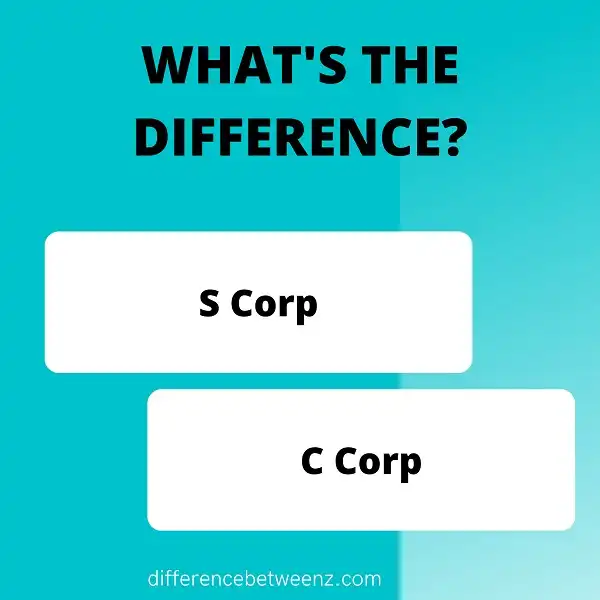Are you considering setting up a business and wondering what the difference is between an S Corp and a C Corp? This article will help to explain the major differences so that you can make an informed decision about which type of corporation to form. We’ll look at the advantages and disadvantages of each, as well as factors such as taxes, filing requirements, ownership rules, and more. With this information in hand, you’ll be able to decide whether setting up an S or C Corporation makes sense for your particular business needs.
What is S Corp?
- S Corp, or S Corporation, is a fairly unique type of business corporation in the United States. It is attractive to many different types of companies due to its ability to blend certain aspects of partnerships and corporations.
- S Corporations offer owners pass-through taxation while at the same time limiting their personal liability and providing shareholders continuing life to the business after ownership changes occur.
- S Corp status can be a great asset for startups, small businesses, and any other organization looking for this individualized form of incorporation. S Corps also come with some restrictions that must be taken into consideration before choosing this option, so it is important for individuals to weigh all of the pros and cons before making a decision about S corp formation.
What is C Corp?
C Corporations commonly referred to as C Corps, are a type of business entity created under United States state law. C Corps are the most popular form of U.S. businesses and provide their owners with limited liability protection and the ability to issue stocks.
- C Corps also treat company profits differently than other types of entities and can offer more opportunities for income diversification due to their increased flexibility in accumulating wealth for shareholders.
- C corps are liable for federal income taxes as well as certain state taxes, having unique distinctions from other corporate entities like limited liability companies or S corporations.
- C Corps have simple formation processes that include registering with a given state to create an entity and filing the necessary paperwork with the respective government departments within the required timeframes.
Difference between S Corp and C Corp
S Corp and C Corp are the two most popular types of incorporation structures in the United States. S Corps, which stands for S-Corporation, is a form of corporate structure that can be used to shield shareholders from personal liability and receive pass-through taxation benefits.
- The S Corp taxation approach allows profits and losses to flow through directly to the owners, where they are then reported on individuals’ personal income tax returns.
- On the other hand, a C Corporation is a corporate structure subject to double taxation: taxes at both the company level and then again when dividends are distributed to shareholders.
- Furthermore, C Corps offer a wider range of investor options with the ability to issue stocks of varying classes as well as provide limited liability protection more accessible regulations than S Corps.
Deciding whether S-Corp or C Corp is best for any given business scenario can be quite complicated – if you’re unsure about what choice would best serve your business it’s always a good idea to consult an experienced corporate attorney.
Conclusion
The main difference between S Corp and C Corp is that the former offers pass-through taxation while the latter does not. This means that S Corps are often more suitable for small businesses, as they offer owners greater flexibility in how they distribute their income. C Corps, on the other hand, may be a better choice for larger businesses as they offer shareholders limited liability protection. Thus, when deciding which type of corporation to form, it is important to consider both the size and needs of your business. Do you want to learn more about forming a corporation? We can help! Our team of experts can advise you on which type of entity would be best suited for your business based on a variety of factors. Contact us today to get started!


